The President's Last Bang
Introduction
Talk about totalitarian states! A brutal dictatorship cracking down on dissent and democracy, a secret police to keep the citizenry in line, and a single-minded devotion to a supreme goal for the nation, defined by the wishes and foibles of one man. That's not North Korea by the way, that's the South, or at least it was twenty years ago. There's a reason why Korean Cinema is a relatively new phenomenon. Films like Oldboy, Save the Green Planet, and The Quiet Family simply couldn't have been made even ten years ago; the government just wouldn't have allowed it. It's been a slow and steady crawl towards true freedom of speech, and even The President's Last Bang, made in 2005 tested that hard won freedom.
The Encyclopaedia Britannica has this to say about Park Chung-Hee, "South Korean general and politician, president of the Republic of Korea from 1963 to his death, whose 18-year rule brought about enormous economic expansion at the cost of civil liberties and political freedom." Other snippets of the article relate his childhood, and early life, attending a Japanese military academy and serving with the Japanese army during World War 2, and then becoming a member of the Korean Army after it won its freedom. In 1948 he was sentenced to death for taking part in a revolt of junior officers who didn't want Korea divided by the Allies, but after turning prosecution witness and implicating his fellow officers as communists, he was pardoned and restored to rank. He was made a general in 1961, the same year he launched a military coup and assumed control of the country. He served as leader of the junta for two years before winning the first of three terms as president. In 1979, Park was assassinated, by his life-long friend Kim Jae Kyu, the head of the Korean Central Intelligence Agency. And thereby hangs a tale.
The President's Last Bang takes these dry recitations as its starting point, and director Im Sang-Soo crafts a satirical black comedy around the events of that fateful night in 1979, painting the main players in that drama with a less than sympathetic light. The son of Park Chung-Hee, Park Ji-Man brought a lawsuit against the film that saw it censored before release (all real life footage of the period was removed lest the audience confuse fiction with reality). That ruling was overturned in 2006, and this UK DVD release sees the film presented in its complete form.
President Park Chung-Hee lives the typical dictator's high life, ruling the country with an iron fist (and through the liberal use of his secret police, the KCIA), and spending his nights in hedonistic excess, good food, good wine, young girls, and Japanese pop music. It's all too much for the chief of the KCIA, Director Kim, who during one such evening quickly improvises an assassination plan, aiming to pin it on a North Korean hit squad, but even before the first shots are fired, the situation begins to spiral out of control.
Picture
I had a right whinge about the January releases from Third Window Films, and not just because of the DVD-Rs I got to review. In this day and age, letterbox transfers and (in Memories of Matsuko's case) burnt in zoom unfriendly subtitles really ought to be a thing of the past. Well, they are now, as for February's releases, Third Window Films have sourced anamorphic transfers and optional subtitle tracks. The President's Last Bang gets a 2.35:1 anamorphic transfer, and all should be well with the world. Except it isn't quite yet.
The President's Last Bang shows all the signs of a being an NTSC-PAL standards conversion, and a poorly interlaced one at that. I had a nightmare of a time screencapping it for this review, as pausing it invariably revealed a flickering frame full of combing artefacts. Otherwise, it's a little soft and lacking in detail, and black levels could be a little better defined. The sub-par transfer is a shame, considering the sumptuous set design and imaginative cinematography. There's a great overhead tracking shot through a corpse strewn crime scene that will stay with me long after the rest of the film has passed from my mind.
Sound
You have a choice between DD 5.1 and 2.0 Korean with optional English subtitles. The dialogue is clear throughout, but it isn't the most striking of surround tracks. There are a couple of errors in the subtitles, 'puss' for 'pus' one example but the really annoying niggle is that they are ever so slightly mistimed. They appear a fraction of a second early, and disappear before the character stops speaking. It's the sort of thing that can be easily corrected with a decent software player, but nigh on impossible with those clunky boxes under the TV.
I had a few head scratching moments when a couple of the characters starting speaking Japanese, there's no explanation for it in the film, and it was only through reading the article in the encyclopaedia that I recalled that pre-World War II, Korea was a Japanese province, and these characters would have had to be bilingual. It doesn't really matter as it's all subtitled in English.
Extras
The disc gets animated menus, with some jerky excerpts from the film playing in the background. The transitions between menus take a tad too long though.
Extras on the disc include 11 trailers for other Third Window Films releases, the theatrical trailer for The President's Last Bang, and an interview with the director Im Sang-Soo. This lasts 22 minutes, beginning with an apology for the poor sound quality. It's conducted in Korean of course, and presented with subtitles, and asks all sorts of questions about the film, focussing most on the controversy generated by it. I have to admit that my enjoyment of this featurette was marred by some horrific typos in the subtitles, bad enough to actually lose sense of a couple of the director's responses. What price spellcheck?
Conclusion
I didn't know quite what to make of The President's Last Bang, but that's all right, as I get the feeling that neither did the director. It just can't make up its mind what it wants to be, wavering between historical docudrama, thriller, action movie, satire, slapstick, and black comedy, and as a result not really succeeding at anything much. It's a moment of time caught on film, the events leading up to and immediately following the assassination, but it doesn't go far enough back to establish motivation, and neither does it go far enough forward to look at the consequences. It presents us with its characters, shows us an interpretation of events, but leaves out the context. It probably works better with Korean audiences, but for someone like me, who has no idea of the politics of the region beyond the broadest of historical brushstrokes, it just falls flat.
What's missing most is the character building. We're presented with a hedonistic president, who enjoys the company of women and indulging in good food a little too much, in the estimation of the head of the KCIA. He's got a toadying yes man in the Secretary, and a blustering Chief Bodyguard who uses his position to bully others. We get a little voiceover at the start of the film telling us of their excesses and the stifling way they run the country, but we see little of it. Meanwhile KCIA Director Kim is shown as a constipated man with health problems, who simply can't take any more of his president, so he puts together a quick assassination plan on the spur of the moment, recruits a couple of like minded agents, and sets to work. The assassination is clumsily, and bloodily carried out, and then comes a matter of the clean up, which is where the plan falls apart, although again for no real apparent reason.
Thinking back on the film, I can understand what was going on, what was happening on screen was pretty straightforward, and obvious. However, as to what the characters were thinking, doing, the decisions they made, and why people reacted in the way they did, none of it makes the slightest bit of sense whatsoever. At the end of the film, a severe, female voice reads out the ultimate fate of the film's protagonists, and I left wondering if I even care about any of these people. A couple of them I didn't even recognise given the lack of impact they had on the film. The President's Last Bang was dull, uninvolving and ultimately pointless. It certainly sheds no light on the historical events, casting all its characters as varying degree of fool, and in presentation it fails to entertain. Korean cinema has given us plenty of gems to appreciate in recent years. This isn't one of them.
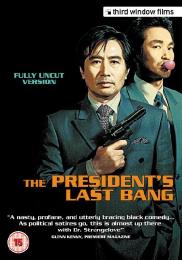
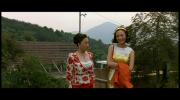
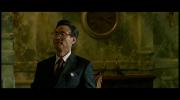
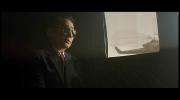
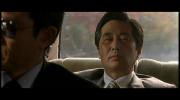
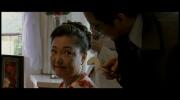
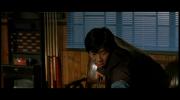
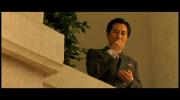
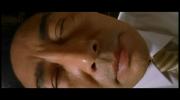
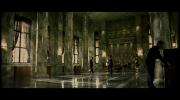
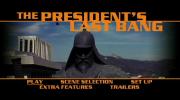
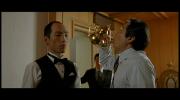
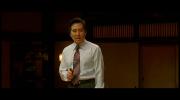
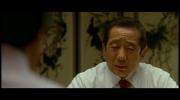
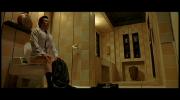
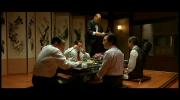
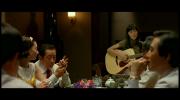
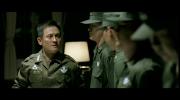
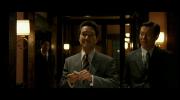
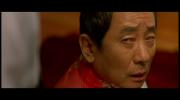
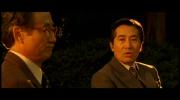






































Your Opinions and Comments
Be the first to post a comment!